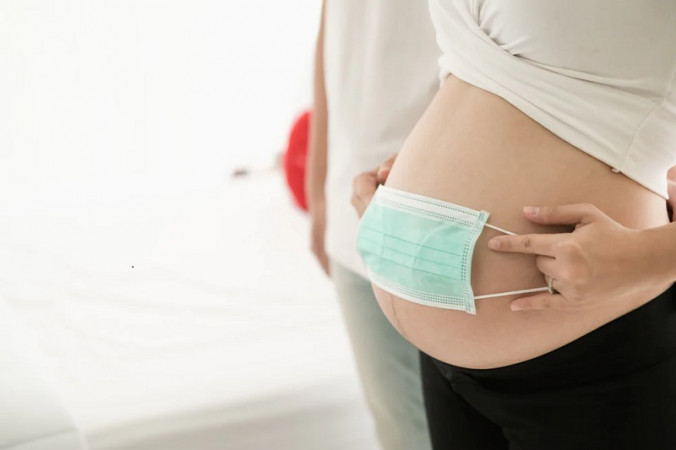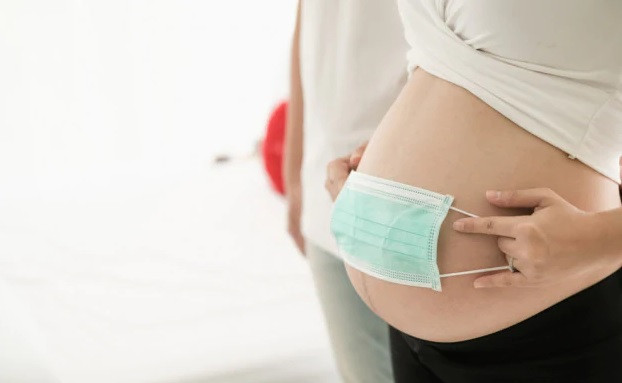Coronavirus and newborns: what's there to know?

What's the coronavirus?
The Coronavirus identified in Wuhan, China, for the first time in late 2019 is a new virus strain that has never previously been identified in humans. It has been called SARS-CoV-2 and it is the respiratory disease that causes Covid-19.
The new virus belongs to the vast family of coronavirus, the same family that includes the common cold, but also the much more insidious SARS and MERS (an epidemic disease spread in the Middle East since 2012). In particular, the new coronavirus has a close genetic affinity with the SARS vector pathogen, which justifies its official name.
Symptoms
The most frequent symptoms are mostly fever, coughing and breathing difficulties, with complications that can, however, also fatally affect the health of weaker people.
How is the coronavirus transmitted?
Infection from individual to individual occurs by short distance contact and not by air. This means that the virus can be contracted by sneezing or coughing from a sick person within a meter or so, but not simply by breathing the air of a room in which an already infected person is present.
There is no evidence that the virus can be transmitted from the pregnant woman to the unborn child or from mother to baby through breast milk. Therefore, UNICEF recommends that pregnant or lactating women living in areas considered at risk apply the normal hygiene measures recommended for the entire population (frequent hand washing with soap and alcohol, wearing a breathing mask when in close contact with the baby, covering the mouth during coughing or sneezing, etc.).
Extreme measures
The measures of extreme caution are, instead, also motivated by the possibility of asymptomatic transmission of the virus by subjects who do not yet present the typical symptoms of the infection (fever, dry cough, muscle pain and breathing difficulties), which make insufficient monitoring mechanisms based on the presence of external symptoms, such as thermal scanners.
Some experts believe, however, that during the incubation period of the virus (estimated at about 14 days, but may be as much as 26 days) the viral load is quite low, and consequently the probability of asymptomatic infection is also quite low. This is therefore still a matter of debate among scientists.
What are the dangers to children's health?
Normally, viruses belonging to the coronavirus family are responsible for about 1/5 of the viral pneumonia, and pneumonia is still the leading direct cause of infant mortality globally, with about 800,000 deaths per year among children between 0 and 5 years of age (153,000 among infants under one month of age), equivalent to one death every 39 seconds.
Pneumonia is a killer childhood disease as infants, together with the elderly and the chronically ill, are the most vulnerable to acute respiratory infections. Babies and children under 2 years of age are at particular risk due to the physiological immaturity of the immune system. Immunodepressed children are at particularly high risk.
However, in the current Covid-19 epidemic there are far fewer infections among children and young people than in other epidemic contexts. Nevertheless, it is important to apply all the prevention and hygiene measures recommended by the health authorities, both in the areas affected by the infection and in those still free of it, to children as well.
Is there a cure?
There are currently no specific antiviral drugs. The therapy consists, therefore, in relieving the symptoms with anti-inflammatory, antipyretic and hydration, but above all in the strict isolation of the patient. There isn't even a vaccine.
The most immediate and effective medicine against the coronavirus is therefore to prevent it from continuing to spread: every time it is transmitted from man to man, in fact, its genome changes as a response to the "pressure" of the immune system of the host, and therefore increases the probability that a mutation is triggered that makes it even more aggressive and lethal.
Covid 19 and pregnancy: all the advice and attention to adopt
All the risks Pregnancy involves a state of partial immunosuppression which makes the pregnant woman much more susceptible to viral infections. In short, Covid 19 represents a serious danger during a woman's pregnant state. Precisely for this reason the WHO has..
ReadCovid-19: how to avoid transmission between mother and baby
Since we are in a health emergency, the Italian Society of Neonatology (Sin) has made public a series of updates to the document ..
Read

